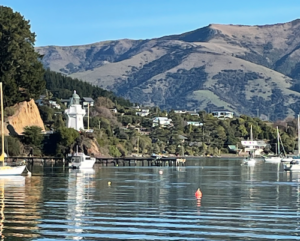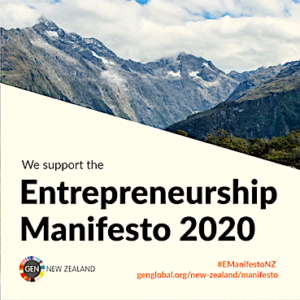 The state government of Victoria has announced the first investments from a $2 billion fund for the commercialisation of research, science and technology. Breakthrough Victoria will focus on life sciences, agri-food, cleantech and digital technologies in a push to reboot the state’s post-Covid economy. The package includes $100 million for co-funding platform services such as research facilities and commercialisation advisory.
The state government of Victoria has announced the first investments from a $2 billion fund for the commercialisation of research, science and technology. Breakthrough Victoria will focus on life sciences, agri-food, cleantech and digital technologies in a push to reboot the state’s post-Covid economy. The package includes $100 million for co-funding platform services such as research facilities and commercialisation advisory.
It was with this in mind that I attended the Startup Council roadshow event in Christchurch recently with fire in my belly. For context, the New Zealand government invests a grand total of $2.5 million per annum to support incubation and acceleration across the entire country. In June 2022 the existing successful “founder incubators” were all de-funded by the Ministry of Business, Innovation and Employment (MBIE) and the funding was handed over to an elite collection of service providers outside of the universities. In 2020 funding for “deep tech incubation” was allocated to a group of foreign controlled entities. There is currently no central government funding for incubation within a New Zealand university.
The newly formed Startup Council sprung out of some policy initiatives developed collaboratively during the first lock-down through Global Entrepreneurship Network New Zealand, to which I actively contributed. The self-selected Council is comprised mostly of representatives from the investment community, but also includes a serial technology entrepreneur and an accelerator operator. The Council has direct communication with government Ministers.
That last point is important because for a long time our startup ecosystem did not have a voice in government. Over the years we have been reliant on pleading a case to gatekeepers at MBIE who seem to have little or no global context for decision making. Up until recently, the government focus has been upon kick-starting the venture investment sector. This ignores the issue of curating a pipeline of deal flow however. Translational research does not magically become investment ready without a lot of background support.
Not investing in our startup ecosystem is not just an existential problem for those of us that work with founders. It is also an impediment to progress in meeting our carbon zero commitments. In 2021 around US $1 Trillion in capital poured into funds targeting investment into environment, social and governance (ESG) focused projects and ventures, including cleantech, sustainable food and renewable energy. Areas in which we already have capability. Investment is expected to grow to $4 Trillion per annum, as the global economy decouples from carbon. If New Zealand is to have a chance to participate, we need to be building sound innovation infrastructure right now, especially within universities!
The cold, hard reality is that (up until now at least) the government has not seen the value in supporting a vibrant startup ecosystem. This is despite the fact that our neighbours across Asia-Pacific have literally invested hundreds of millions over decades. If nothing changes and with the world open for business again, it will be no surprise if some of our scientist entrepreneurs and tech startup founders start looking towards the West Island. Or perhaps even further afield.
Paul Spence is a commentator and serial entrepreneur, a previous co-founder of a successful New Zealand based global technology venture, co-founder and director of Creative Forest, principal at GeniusNet Research & SondXF and an advisor at ThincLab. You can follow Paul on Twitter @GeniusNet or sign up for a free weekly digest of startup, tech and innovation related events co-curated by him through New Zealand Startup Digest.

 They called it the slap that reverberated around the world. A wealthy and privileged, angry man arrogantly displaying his lack of respect for a long established institution and the faithful community that had blindly supported him. No, I’m not referring to the infamous Oscars night incident, I’m talking about Grant Dalton’s acceptance of an offer from the city of Barcelona to host and fund the 2024 Americas Cup yacht race.
They called it the slap that reverberated around the world. A wealthy and privileged, angry man arrogantly displaying his lack of respect for a long established institution and the faithful community that had blindly supported him. No, I’m not referring to the infamous Oscars night incident, I’m talking about Grant Dalton’s acceptance of an offer from the city of Barcelona to host and fund the 2024 Americas Cup yacht race.



 During the last few months a number of us from the entrepreneur enabler community have been working on a
During the last few months a number of us from the entrepreneur enabler community have been working on a 
 After missing the previous two events due to timetable clashes, the planets aligned and I finally made it to this year’s
After missing the previous two events due to timetable clashes, the planets aligned and I finally made it to this year’s  Instructing the Super Fund to channel
Instructing the Super Fund to channel